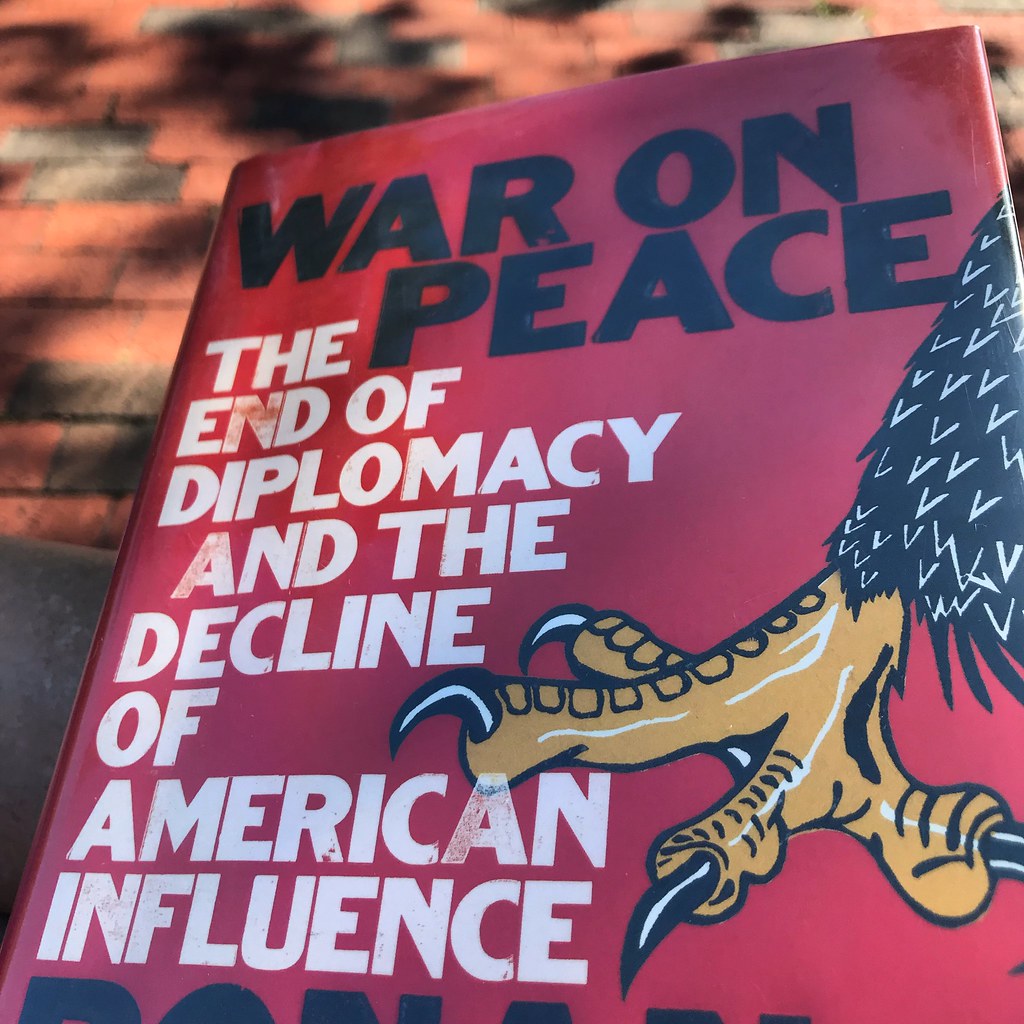Ronan Farrow has done the impossible in War on Peace: The End of Diplomacy and the Decline of American Influence, creating a story about bureaucracy that’s compelling and relevant to our troubled times. In this account of recent American diplomatic history, he reveals how the State Department has been hollowed out by Democratic and Republican administrations alike, to the detriment of our national interests.
Standing in for a robust, bipartisan American approach to international relations is the towering figure of Richard Holbrooke, who Farrow worked for at the State Department. He brought peace to the Balkans by literally locking squabbling leaders in a room. His mix of personal charisma, backed with American power, was indispensable in the Clinton era.
But not for Barack Obama, who disdained this figure tied to his political opponents. While he was eventually called to serve, and given the hopeless task for bringing peace to Afghanistan, he was undercut by an administration under the sway of its generals. Foreign policy problems, like coming to some sort of accommodation with the Taliban, became military problems and handled with the same kind of counter-insurgency tactics that failed in the Vietnam War.
Holbrooke lived long enough to see America escape one nation-building exercise, Vietnam, only to become embroiled in another one in Afghanistan.
Farrow makes the case that America needs its diplomats in War on Peace: The End of Diplomacy and the Decline of American Influence. Sadly, the decline that began under Bush and Obama has only accelerated under the nationalist Trump. We don’t even have ambassadors in hotspots like Saudi Arabia, anymore. Instead, our country is represented by double-dealing members of the Trump/Kushner crime family, who are focused on personal profits rather than our long-term national interests. This would be an anathema to Richard Holbrooke and any of the giants that built the peaceful post-war world that we enjoy.
